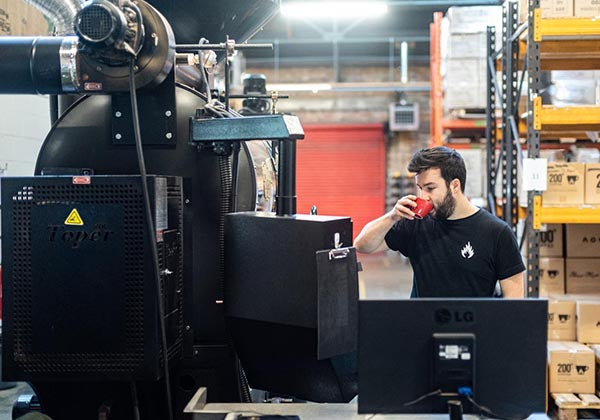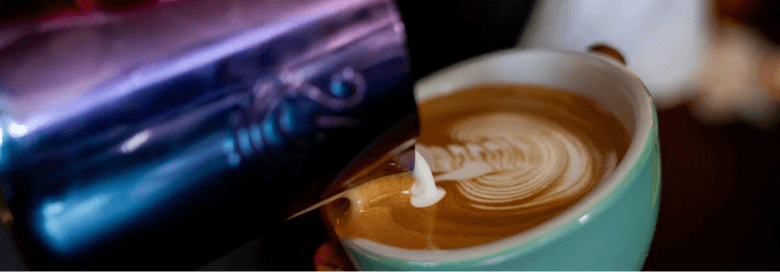Coffee Roasting Q&A With Head Roaster Mike Steele

A ROASTING Q&A WITH OUR HEAD ROASTER, MIKE STEELE:
"I've been roasting with 200 Degrees for 5 years; before that I was working as a barista for numerous cafes"
How do you select your coffees?
We work closely with a number of different importers who are able to offer us seasonal coffees as well unique coffees such as exclusive microlots or new varitetals. When choosing which coffees to buy we take into account the 'story' behind the bean, the traceability, how different it is to previous coffees we have had but also whether we are able to build a relationship with the importer and the farms that they buy from.
Tell us about the nature of your roasting process, the steps, equipment, people involved and different roasts…
At 200 Degrees we have 3 roasters ; a Toper 15kg, a Toper 30kg and an Ikawa professional sample roaster for small 50g test batches. We have 2-4 full time staff members roasting and bagging every weekday.
The roast profiling process starts when we receive samples of new coffees that we test out on the Ikawa: we initially choose a generic roast profile that will give us a good, safe output to allow us to start to analyse the bean.
From there we taste the sample as a group, discuss the profile, adjust, re-roast, and so on, until we think we have got the best from the coffee before moving over to the larger roasters ready for production.
How is consistency of quality and taste maintained?
We have several parameters that we check every roast for: roast profile and development time, final roast colour, weight loss and finally the most important, taste.
What aspects of the roasting process need special attention for a good result?
All of it! The roast process is not a science where by every batch roasts exactly the same, due to different variables such as temperature, humidity and even the weather plays a part in how a coffee roasts. We therefore need to closely monitor every roast to ensure it's progressing how we want it to, making tweaks and changes as and when they need.
How long does the process take, and how is the coffee stored/then sold?
A roast takes between 10 – 20 minutes depending on roast level and batch size. After being roasted the coffee is weighed into bags with a one way valve to allow the coffee to de-gas (the process where the beans release CO2 for a period of time after roasting) without oxygen entering - this keeps the coffee fresher for longer.
Tell us a little about the cupping process and ‘taste testing’ coffee.
The cupping process is a way to evaluate a coffee's flavour and aroma. We do this by brewing the coffees without any filters that can affect the end result. It's then 'slurped' from a cupping to aerate the coffee releasing its aroma and enhancing the flavour.
Scoring and conversations can be had to see how people rate the coffee as well as any particular taste notes experienced.
YOU CAN TASTE MIKES HARDWORK IN OUR STORES, AT HOME OR AT WORK:
Want to Drink Better Coffee at work?
For a free coffee assessment, give us acall on 0115 837 4849, email sales@200degs.com, or click on the button below to see more about our business solutions and send us a message.
